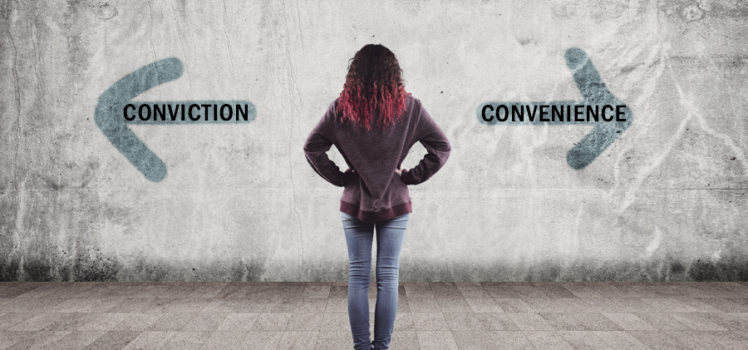Are You Developing Students of Convenience or Conviction?

Meeting people with a passion for student ministry energizes me. Knowing they understand the struggles while maintaining a long-range vision for the rewards of their investment in students is refreshing.
I enjoy late night talks, Starbucks coffee breaks, and passionate discussions after a conference, seminar or anywhere else I can connect with student leaders. I always come away challenged to do a better job, to be a better leader. In those conversations I glean a ton of new ideas.
However there is one discussion topic I wish I could avoid: the percentage of student dropouts from church after high school. It appears to be the required “topic de jour “in any gathering of student leaders whose ministries consist of double digits. Of course, it is accompanied by quoting the usual repertoire of numbers from a “who’s who” in student ministry research.
I am not suggesting that the research is not scholarly or true. My concern is simply with the survey’s study groups. I think some of the surveys may have counted any student whose “derriere” temporarily warmed a chair in a classroom or rally. I personally would rather see a study based on students who truly were products of discipleship.
I cannot fix the problem in this brief post; I am simply suggesting that we begin changing the paradigm at the grassroots level. Consider this: If more student ministries would commit to building on the 2 Timothy 2:2 model, then researchers could evaluate a different type of student in the future. This should definitely provide some entirely new content for the late-night discussions at student ministry conferences.
I am reminded of something Ian Thomas said in his book The Indwelling Life of Christ: All of Him in All of Me. In his chapter concerning students, entitled “Evangelically House-Trained,” he makes a point about convenience and conviction . . .
They were following a conscience of convenience that governs behavior according to what is consequentially right or wrong. A conscience of conviction, on the other hand, determines what is morally right or wrong. While the conscience of convenience is subject to every changing wind of fashion, the conscience of conviction, under the full control of the Holy Spirit, is anchored in truth.
Instilling biblical convictions or principles into students is not just a biblical suggestion. These same principles will guide them while they are in our ministries and throughout their lives. Students who become disciples rather than just student ministry attendees are less likely to become statistics.
Tell me about some of the ways you have seen discipleship change the paradigm of your student ministry.

